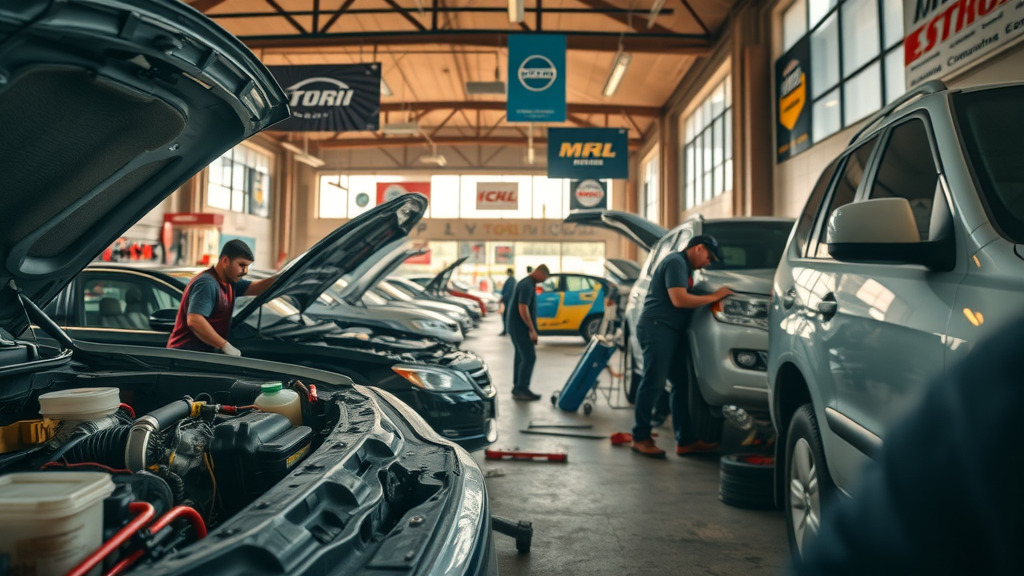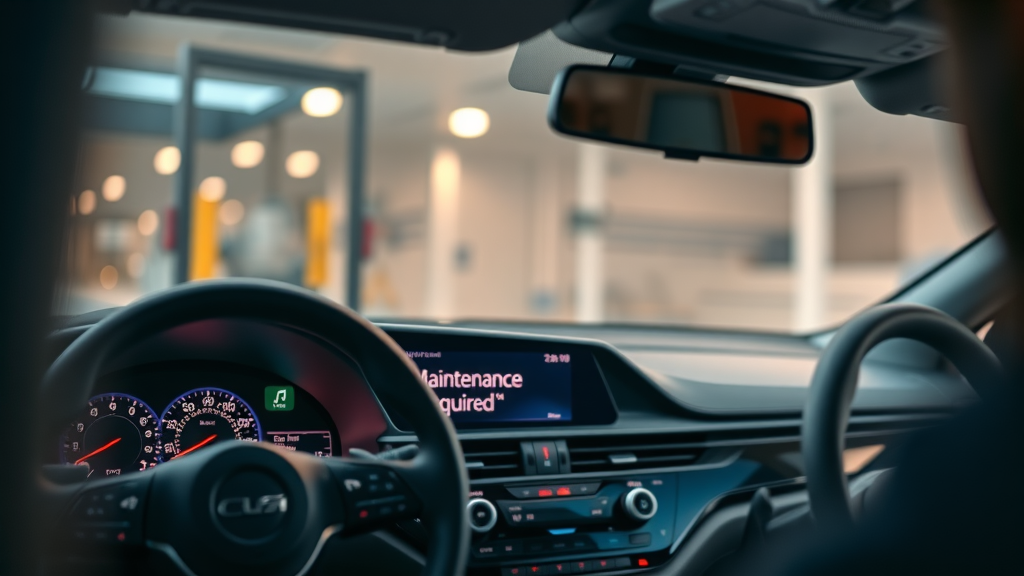“Routine vehicle maintenance is the key to prolonging the lifespan of your car and avoiding costly repairs.” – Automotive Expert
Have you ever wondered how to keep your vehicle running smoothly without shelling out a fortune at the repair shop? You're not alone. Routine vehicle maintenance is essential for ensuring your car remains in top shape, extending its lifespan, and avoiding those dreaded expensive repairs.
What You'll Learn: Key Benefits of Routine Vehicle Maintenance
Understanding routine vehicle maintenance requirements
Cost-saving benefits of regular upkeep
How to create a maintenance schedule
Essential maintenance tasks

What is Routine Maintenance on a Vehicle?
Defining Routine Maintenance for Modern Vehicles
Routine maintenance refers to the series of regular checks and minor repairs that help keep your vehicle operating efficiently. It typically includes vital services like oil changes, tire rotations, checking fluid levels, and replacing filters. These activities are essential to prevent wear and tear that might eventually lead to more significant issues.
Why Routine Maintenance is Crucial for Your Car
Your car is a complex machine, and each component plays a critical role in its overall performance. Engaging in regular maintenance not only improves fuel efficiency but also enhances the safety and reliability of your vehicle. By keeping up with scheduled check-ups, you ensure that potential problems are identified and addressed before they escalate, thereby avoiding costly repairs.

Decoding 'Routine Maintenance Required' Warning on Cars
Understanding Your Car’s Dashboard Indicators
Your car is equipped with numerous indicators designed to alert you to potential issues. The 'Routine Maintenance Required' warning is a reminder to have scheduled services performed. It doesn't necessarily mean there's a problem, but it ensures you don't forget necessary maintenance steps, such as an oil change or brake inspection.
Steps to Take When the Warning Light Illuminates
When you see the warning light, it's crucial to consult your vehicle’s manual or contact a professional to determine the necessary steps. This might involve checking fluid levels or booking an appointment for a comprehensive check-up at your trusted repair shop.
Components of Routine Maintenance: A Comprehensive Guide
Oil changes
Brake inspections
-

Tire rotations
Fluid checks
Filter replacements
Recommended Maintenance Schedules for Different Vehicles
General Guidelines Based on Make and Model
Maintenance schedules vary depending on the make and model of your vehicle. It's vital to follow the manufacturer’s recommendations, commonly found in the owner’s manual, to ensure longevity and peak performance.
Customizing Your Vehicle’s Maintenance Plan
Your vehicle’s maintenance plan can be tailored based on your driving habits and the environmental conditions you typically encounter. For instance, extreme temperatures may require more frequent fluid level checks and air filter replacements.

Key Takeaways: Maintaining Your Vehicle for Longevity
Prevent major repairs through routine checks
Follow manufacturer’s recommended schedules
Utilize professional service providers

Quotes from Industry Experts on Vehicle Maintenance
“An ounce of prevention is worth a pound of cure – especially in automotive care.”
FAQs About Routine Vehicle Maintenance
What does 'routine maintenance required' mean on a car?
It’s a reminder for scheduled maintenance, not an indicator of a current problem.
How often should maintenance be performed?
Typically, every 5,000 to 10,000 miles depending on your vehicle and driving conditions.
Is professional servicing necessary?
While you can perform minor checks, professional servicing ensures thorough diagnostics and repairs.

In-Detail Tables for Maintenance Timeline
Refer to the following tables for specific tasks based on mileage and annual checklists to keep your car in top condition.
Mileage |
Task |
|---|---|
Every 5,000 miles |
Oil change, tire rotation |
Annually |
Full inspection, fluid level check |
Incorporating Technology in Car Maintenance Routines
Apps and Tools to Track Vehicle Health
Modern technology provides car owners with apps and tools to monitor their vehicle’s health. Options include checking oil levels, fluid exchange, and tracking routine maintenance remotely.

The Role of IoT in Modern Vehicle Maintenance
The Internet of Things (IoT) allows vehicles to connect to diagnostic tools that provide real-time updates on performance and maintenance needs, reducing the likelihood of unexpected repairs.
People Also Ask: Understanding Vehicle Maintenance Needs
What is routine maintenance on a vehicle?
It includes regular checks and services like oil changes and brake inspections to keep your car in running condition.
What does 'routine maintenance required' mean on a car?
This indicates the need for scheduled maintenance to prevent potential issues.
What is in routine maintenance?
It generally includes tire rotation, oil change, brake checks, and filter replacements.
What is the recommended maintenance schedule for a car?
It depends on make/model, typically every few thousand miles or as stated in the owner’s manual.
Conclusion: Commit to Routine Maintenance for Savings and Safety
Emphasize Longevity Through Preventative Care
A Final Note on the Importance of Regular Maintenance

Call to Action: Take the First Step Toward Preventative Care
Start your journey toward better vehicle care by creating a routine maintenance schedule today. Reach out to a professional service provider and keep your car running smoothly.
For more insights on maintaining your vehicle, visit Cox Automotive or Bridgestone Americas.
 Add Row
Add Row  Add
Add 





 Add Row
Add Row  Add
Add 

Write A Comment